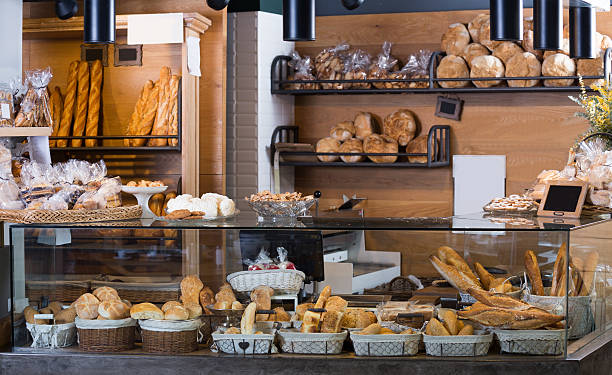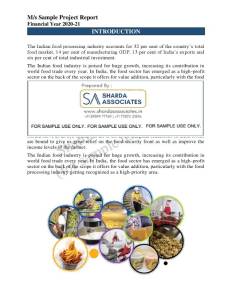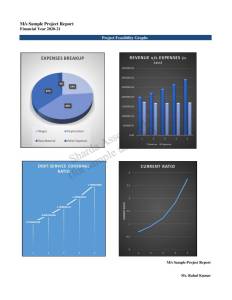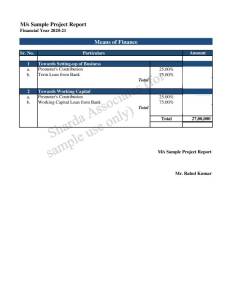Project Report For Small Bakery Unit
Introduction
Project Report for Small Bakery Unit is as follows.
Bakery is a classic product with a significant role in the food processing industry. Bakery products have become popular among people of various socioeconomic backgrounds. Despite completely automated and huge capacity bakery operations, many people, particularly in semi-urban and rural areas, prefer fresh bakery products from local bakeries since they are modest in cost and offer a wide variety.
As a result, the bakery industry has promise in terms of employment creation, household-oriented business prospects, and the provision of a diverse selection of cakes, bread, and biscuits at low prices with good nutritional value.
Bread, cookies, and cakes are the three primary categories of the bakery business in India. Today, the bakery is no longer limited to bread, biscuits, cakes, and pastries as it was always known, but is also characterized in terms of cutting-edge technology. Pastries, Danish Pastries, Croissants, Rusk, Pizzas, Pancakes, Crisp Bread, Bread Sticks, Kulchas, Crackers, Garlic bread, fruit bread, Focaccia, Buns and Pav, Ciabatta, French Baguette, and Rye Bread, name a few.

Types of Small Bakery Unit
Retail Bakery: This style of bakery concentrates on selling baked goods to clients directly. It could contain a storefront where consumers can come in and buy baked goods such as bread, pastries, cakes, cookies, and other baked goods. A retail bakery may also provide limited seating for consumers to enjoy their products while they are on the premises.
Specialty Bakery: A speciality bakery is one that specialises in a specific niche or specialty baked foods. It could, for example, specialise in gluten-free, organic, vegan, or artisanal items. Speciality bakeries can attract a specialised customer base and differentiate themselves in the market by catering to a certain dietary necessity or preference.
Wholesale Bakery: A wholesale bakery manufactures vast amounts of baked goods and sells them to other businesses in bulk. Supplying restaurants, cafes, hotels, caterers, grocery stores, and other food establishments is one example. Wholesale bakeries frequently operate on a bigger scale, necessitating effective manufacturing and distribution infrastructure.
Bread Bakery: A bread bakery primarily produces various types of bread, such as artisan bread, baguettes, rolls and speciality loaves. Depending on their company model and consumer demand, bread bakeries can serve both the retail and wholesale sectors.
Pastry Shop: Pastry shops make a wide range of pastries, such as croissants, danishes, tarts, pies, and other delicate treats. These establishments frequently have a display case where clients may select their chosen pastries, and they may also provide coffee or tea to accompany the goodies.
Market Potential Of Small Bakery Unit
The Indian bakery market is anticipated to be worth approximately USD 10.1 billion in 2022. Between 2023 and 2028, the market is estimated to grow at a CAGR of 9.6%, reaching a value of USD 17.44 billion by 2028.
The bakery industry in India has witnessed a significant growth rate in recent years, owing to factors such as increasing urbanization, changing consumer preferences, and the rise in disposable income.
The bakery market can be segmented into different categories such as bread, biscuits, cakes, pastries, and other bakery products. Bread is the most commonly consumed bakery product in India and accounts for the largest market share. The biscuit segment is also growing at a significant pace, mainly due to the increasing demand for healthy and nutritious biscuits.
The Indian bakery industry is highly fragmented, with a large number of small-scale and unorganized players dominating the market. However, in recent years, there has been a shift towards the organized sector, with many large players entering the market and expanding their product portfolio.
The increasing demand for convenience food, busy lifestyles, and the rise of e-commerce platforms have also contributed to the growth of the bakery industry in India. The demand for premium and artisanal bakery products is also increasing, driven by the growing middle-class population with a higher disposable income.
In terms of geographical distribution, the southern and western regions of India are the largest markets for bakery products, followed by the northern and eastern regions. The major players operating in the Indian bakery industry include Britannia Industries, Parle Products, ITC Limited, and Mondelez India Foods Pvt. Ltd.
Project Report On Small Bakery Unit
Need Help?
Create 100% Bankable Project Report





